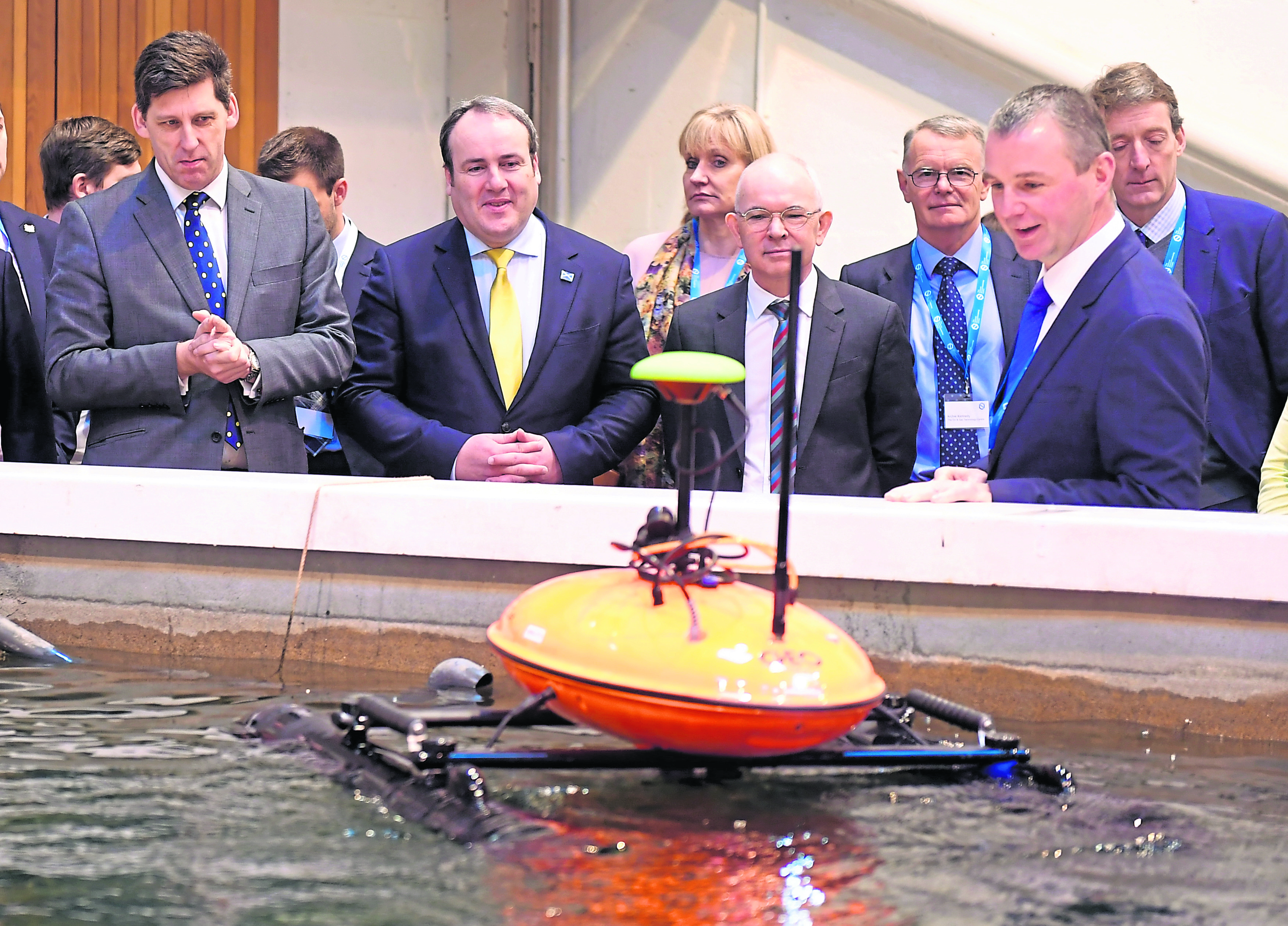
Since opening two-and-a-half years ago, the boss of the Oil and Gas Technology Centre (OGTC) believes it has come some way to “debunk” the concept the UK industry is reluctant to try new ideas.
It was only last year that the centre and Robert Gordon University launched a new study into the willingness of the industry to adopt and deploy new technologies in the North Sea.
At the time they described the “race to be second” as not unique to oil and gas – but “a real barrier in recent years”.
To date, though, the OGTC has co-invested with industry £129 million in developing and deploying new innovations in the UK Continental Shelf (UKCS).
Crucially, that includes 32 field trials, with 12 in progress and another 47 planned, ranging from a buoy which recharges itself with wave energy to a new decommissioning system which could replace heavy-lift vessels.
Chief executive Colette Cohen thinks this exemplifies the industry’s willingness to test out new ideas.
She said: “I would definitely say we’ve seen a lot of progress. Within two and a half years we’ve already got more than £120m co-invested in the industry, of which we provide about 35% and the industry provides 65%.
“I think that shows immediately that not only is there a lot of activity, with over 200 projects, but there is a lot of engagement and a lot of support.
“So I think we have started to debunk the concept that the industry is reluctant.”
Ms Cohen was quick to point out, however, that oil and gas is an inherently dangerous sector and that means caution is a good approach. She added: “I’m not suggesting that the industry has completely turned a corner and is embracing every new idea that comes around. But I also don’t think we’re an industry that should be doing that.
“We’re a high-risk, high-consequence industry, which as a result needs to be cautious of bringing in new ideas unless they are fully evaluated, de-risked and used appropriately.
“I think the industry is what I’d call cautiously engaged, which is a good way to be around technology.”
So far, the OGTC has screened more than 870 technologies, with 204 projects approved.
The OGTC opened its doors in February 2017 with £180m in funding as part of the Aberdeen City Region Deal, with additional investment funds to come from the industry over 10 years.
Ms Cohen described it as a “great example” of combining government finances with industry and academia, supported by regulators and local councils.
As well as de-risking technology, the OGTC is ultimately aimed at taking these ideas and commercialising them, with “clear roadmaps to driving economic returns”.
The majority of companies the OGTC invests in are based in the UK, with sites in the Aberdeen area.
There are some which are based overseas, however, so the OGTC has safeguards to try to make sure the North Sea gets returns on their investment.
Ms Cohen said: “Most of our companies are actually UK-based and an even higher proportion are north-east of Scotland-based. We just have a few companies that come from overseas. Norway would be one of the communities that we invest in.
“One of the things we request is that if they go to commercialisation of the technology, that they would have a facility here in Aberdeen or around the Aberdeenshire area to support the North Sea.
“During our investment in smaller companies, we have a level of control. The technology can’t be bought or sold without our approval while we’re investing in it.
“You can’t completely protect, in the long run, against a smaller company being bought by a larger foreign-based company, but what we can try and do is create a runway for these smaller companies to fast-track their technologies and commercialise, and grow fast enough that they don’t need to be taken over by somebody else.”
Many firms the OGTC has worked with have been doing just that – with alumni like Opex Group and DeltaTek, to name a couple, making headlines in recent months showcasing their growth.
Ms Cohen started her career in 1991 in the offshore industry, working for operators including BP, ConocoPhillips and Britannia around the world.
Latterly she was a senior vice-president at Centrica before coming on board in 2016 with the task of making the OGTC the “go to” centre for oil and gas technology solutions globally.
With waves of new projects and recent successes like the opening of the National Decommissioning Centre in Aberdeenshire, she said the OGTC is surpassing her own expectations.
“When we came here into an empty office three years ago – we came into it in the first week of September – we had the desks, but we didn’t have computers, legal processes or procedures, we didn’t have project management, we didn’t actually have funding at that stage,” she said.
“We knew it was coming but it wasn’t all in place and to think that now we’re here with an innovation hub downstairs, a National Centre for Decommissioning created, over 200 projects going, £120m invested, over 800 technologies evaluated.
“More than 19,000 people have come through our doors since we opened in February 2017.
“If somebody had told me that’s what we would achieve when I walked into this empty office three years ago, I would have said, ‘Get out of here’.
“I was given £180m over 10 years to find supporting investment – to hence get £360m in total.
“To be just over two and a half years and to be at £120m invested, I never would have expected that. So I am encouraged by the industry’s engagement and encouraged by us hitting the right targets, the right areas of interest, making an impact.”


